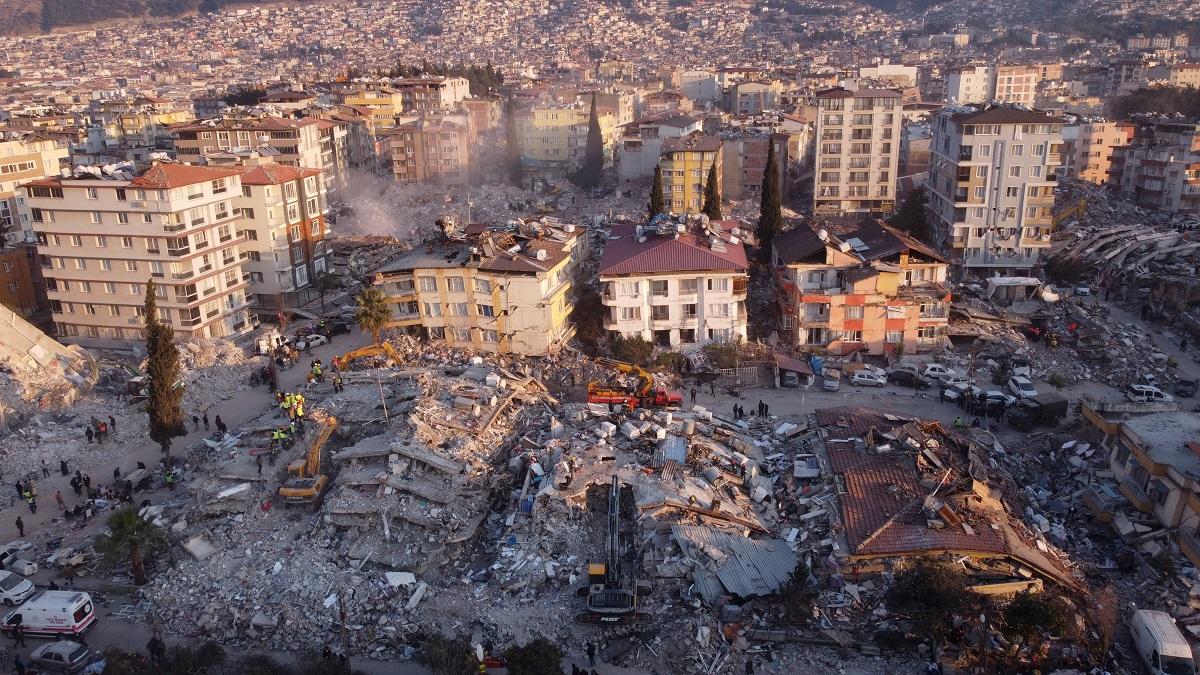Donors vow funds as Turkey quake rebuilding costs top $100 billion

BRUSSELS — Turkish President Recep Tayyip Erdogan said Monday that the cost of the damage from last month's devastating earthquake had risen to $104 billion, as donors at a conference in Brussels vowed funds to help Turkey and Syria.
European Commission President Ursula von der Leyen kicked off a EU-hosted fund-raising event by promising €1 billion ($1.1 billion) for reconstruction in Turkey and €108 million for humanitarian aid in Syria.
"The needs of the survivors are still massive and must be tackled with urgency," von der Leyen said.
Speaking by video link from Turkey, Erdogan warned that "regardless of its economic standing, it is impossible for any country to fight a disaster of this scale on its own."
The catastrophic 7.8-magnitude quake last month flattened entire cities, killing more than 50,000 people across southeastern Turkey and parts of war-torn Syria.
Millions were displaced and last week's flash floods in the region only added to the misery.
The United Nations has set the "recovery costs" for Syria at $14.8 billion.
Aid groups urged donors to step up their commitments after the UN complained of the poor level of response to a call it made in mid-February for urgent funding.
The International Rescue Committee (IRC), said they should at least ensure that the UN's emergency appeal for $1 billion for Turkey and $397 million for Syria are fully funded.
"Over a month since the earthquake, the situation in affected regions remains desperate," said Tanya Evans, IRC country director for Syria.
"With many homes damaged or destroyed, many people are left with no choice but to sleep in overcrowded and under-resourced collective shelters," she said.
The UN had said the appeal for Turkey has so far only been 16 percent fulfilled, while the figure for Syria stands at 72 percent.
Germany has said it will double its support for the quake victims to 240 million euros ($255 million), and France promised an additional 12 million euros.
Turkey is a key partner for the EU even if ties are often strained, and the bloc already gives billions in aid to help its eastern neighbor house refugees from Syria's 12-year war.
Syria 'deplores' conference
But the government of Syrian President Bashar al-Assad, sanctioned by the West since the brutal crackdown that sparked the ongoing civil war, will not be involved.
The foreign ministry in Damascus said it "deplores" the holding of the conference in Brussels without the involvement of the Syrian authorities.
While international rescue teams and aid flowed quickly to Turkey, humanitarian organizations faced major hurdles reaching stricken areas in northern Syria.
UN investigators say the area became the "epicenter of neglect" as the warring factions and hesitancy by the international community held up desperately needed aid.
"Syria deserves the world's solidarity and support," said Fabrizio Carboni, Middle East director for the International Committee of the Red Cross.
"Despite these staggering needs, which have deepened after the February earthquake, our work in Syria is heavily under-funded," he said.
Aid has belatedly begun reaching the stricken areas in northern Syria, and the EU and United States eased sanctions to try to speed up deliveries, while the Syrian government opened two new border crossings.
Assad has been receiving calls and humanitarian aid from Arab leaders in the aftermath of the quake, in a move analysts say could be the start of improved ties.
He arrived Sunday for his second visit since the quake to the United Arab Emirates, which has already pledged more than $100 million in assistance.
Assad's key backer Russia was excluded from the Brussels conference because of the war Moscow launched against Ukraine. — AFP




